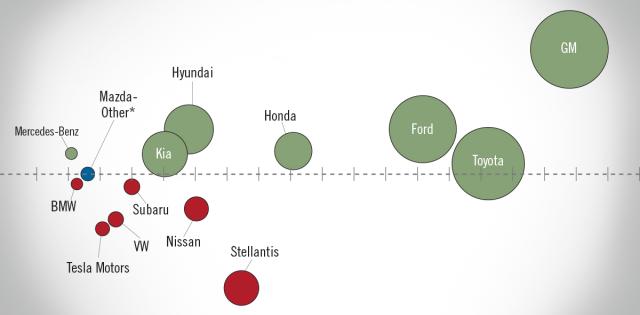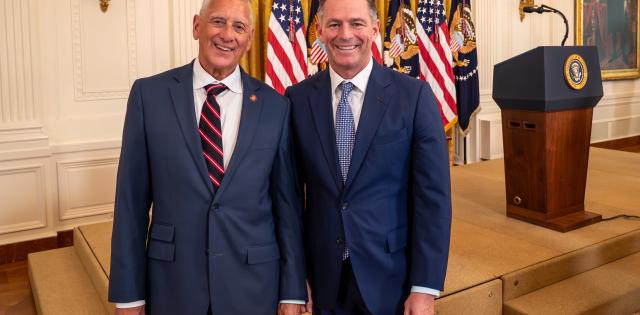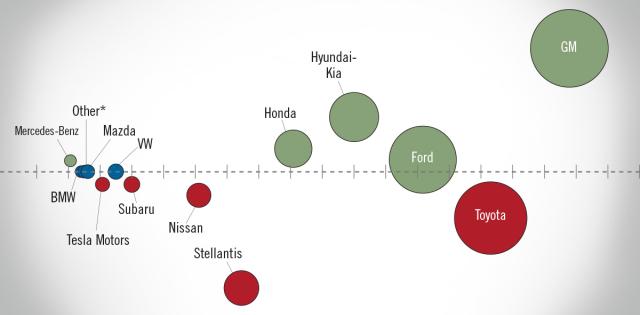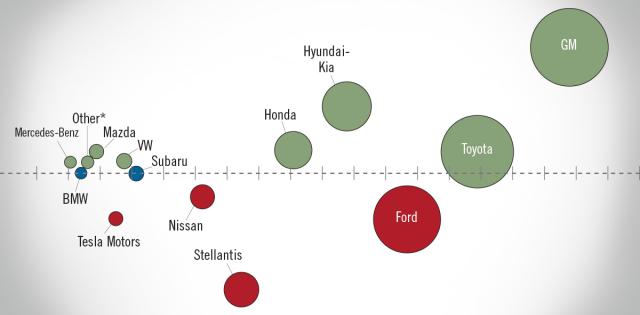In April of this year, one of the largest dealership groups in the U.S. agreed to pay a record $10-million fine to settle an alleged auto lending discrimination case brought by the FTC and the State of Illinois.
The fine broke the previous record dealership fine paid to the FTC, set in 2017 to settle an unfair and deceptive advertising case, by more than $6 million.
The penalty was part of a consent order to resolve allegations that the multistate dealership group and one of its general managers violated the FTC Act, the Equal Credit Opportunity Act (ECOA), the Truth in Lending Act, and state law in connection with the selling and financing of vehicles.
The FTC alleged the dealership’s "discretionary policy that permits its employees to mark up interest rates and add charges for add-on products” resulted in higher costs to minority applicants than similarly situated white applicants. The FTC further claimed in its complaint that “[d]isparities in charges between Black consumers and non-Latino White consumers are statistically significant and cannot be explained by factors related to underwriting risk or credit characteristics of the applicants.”
The fact that regulators continue to investigate and enforce unintentional disparate impact discrimination claims against auto retailers and the auto finance industry shouldn’t be surprising to anyone that’s been a part of this universe for the last decade. Nor should the fact that dealer discretion in F&I pricing was the main target of, and primary justification for, the enforcement action.
Even so, this most recent case is particularly notable for two reasons.
First, the sheer size of the fine involved strongly suggests that that regulators at both the federal and state level intend to use heavy monetary penalties as a way to compel action and, in many cases, drive “regulation through enforcement.”
The second is that this was not a case that centered exclusively on dealer compensation for arranging vehicle financing; it also involved how dealers price voluntary protection products (VPPs).
That should be alarming, as it represents to our knowledge the first time the FTC has targeted dealer pricing discretion involving VPPs.
In fact, just weeks after the consent order was announced, Automotive News wrote that this “$10 million Federal Trade Commission settlement . . . suggests regulator scrutiny of dealership margins has expanded from interest rates to finance and insurance products.”
Randy Hendrick, one of the nation’s leading dealership compliance attorneys, agreed, telling attendees at the Ethical F&I Managers Conference in April that VPPs are “in play for discrimination purposes," according to Automotive News.
As part of the terms of this settlement, the dealership group must establish a comprehensive fair lending program that, among other components, requires the dealership in retail installment sale contracts involving dealer participation to (i) establish a standard dealer participation rate (SDPR) below a certain threshold that will be charged to all consumers, and (ii) only deviate below the SDPR for certain defined reasons that are recorded and approved by the dealership’s fair credit compliance officer.
Such a program is very similar to the optional NADA/NAMAD/AIADA Fair Credit Compliance Policy and Program.
As with other recent actions, this consent order underscores the FTC’s intention to hold dealer leadership – as well as the dealership entities themselves – responsible for alleged unlawful behavior, and it further highlights the need for dealers to conduct robust training on, and oversight of, all aspects of their sale and finance operations. This includes ensuring that pricing discretion is lawfully exercised and appropriately monitored with regard to VPPs as well as dealer participation.
Fortunately, there are optional compliance tools to assist dealers in both of these areas: The NADA/NAMAD/AIADA Fair Credit Compliance Policy and Program addresses pricing discretion related to dealer participation, while the NADA/NAMAD/AIADA Model Dealership Voluntary Protection Products Policy addresses pricing discretion and other compliance issues related to VPPs.
Adherence to non-discriminatory access to credit remains a core value for America’s new-car and -truck dealers, and the anti-discrimination laws governing lending underscore a moral imperative to avoid discrimination and to treat all customers fairly.
NADA, NAMAD, AIADA, and many others believe these programs represent the best approach to promote compliance with ECOA while preserving enough flexibility to allow customers to continue leveraging the overwhelming benefits that are produced by today’s intensely competitive vehicle financing market.
My predecessor, Peter Welch, pledged three years ago that as long as he was president and CEO of NADA, he would continue to encourage every franchised dealer and dealership group to adopt and implement these programs. I am reaffirming that pledge myself today.
It has always been, and always will be, up to our industry to lead the way to ensuring that every customer is treated honestly, fairly and with the utmost respect. And every dealer has at his or her disposal a framework for doing so throughout the F&I process while at the same time demonstrating our industry’s collective commitment to abiding by some of our nation’s most important laws.
I truly hope every dealer works earnestly to fulfill this commitment.
For more stories like this, bookmark www.NADAheadlines.org as a favorite in the browser of your choice and subscribe to our newsletter here:










